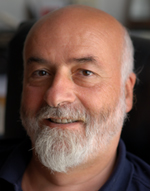Letter of Invitation
Dear Colleagues,
It is a great pleasure for me to invite you to the 9th EUROPAD Conference, that will be held in Barcelona, Spain, on May 25-27, 2012.
The mission of Europad has always been to promote information exchange and updating within the scientific community, but also to spread an illness-centred conception of addictive disorders, with heroin addiction as a long-dating prototype. Thereby, the structure of meeting has always tried to propose systematic updating on different issues from a common biomedical viewpoint.
Discussion will be held about the nature, quality and extent of specific psychopathological symptoms of heroin addicts. Conditions which are often mistaken for additional psychiatric syndromes, or independent polyabuse patterns, may be in fact reconsidered as a corollarium of chronic opiate intoxication, beyond the core elements of craving and drug-seeking behavior, without the meaning of a dual diagnosis. Also, certain polyabuse patterns may be seen as the self-perpetuation of addiction by other opioidergic substances such as alcohol.
Separate symposia will be dedicated to a bunch of “hot” topics: drug-related morbility and mortality, treatment of special populations, cost-benefit issue. This year, a whole session will concern the issue of long-term discontinuation of successful treatment: speakers will deal with the issue of “leaving” treatment and of the viability of patient-suggested discontinuation in the long-term.
The differences between national health policies and treatment trends in different countries will also be widely discussed. In fact, new experiences about antagonist treatment stands together with the presentation of data about optimization of agonist treatment. An attempt to identify possible patient-treatment matching will also account for genetic factors. The genetics of treatment sensitivity and treatment effectiveness will be presented for the first time in a separate session.
One central symposium will deal with the issue of the “medical art” of inducing the patient onto a treatment they are ambivalent towards. Motivational treatment, in all its possible fields of application will be discussed together with the doctor-patient trust model. It is often forgotten that beyond theoretical effectiveness and ideal prevention, the insight of the addicted patient and its ambivalence at a behavioral level need a sound and consistent position to be held by the physician in charge.
I’m looking forward to meeting you all in the beautiful city of Barcelona!
 |
Icro Maremmani
President of EUROPAD |
|



